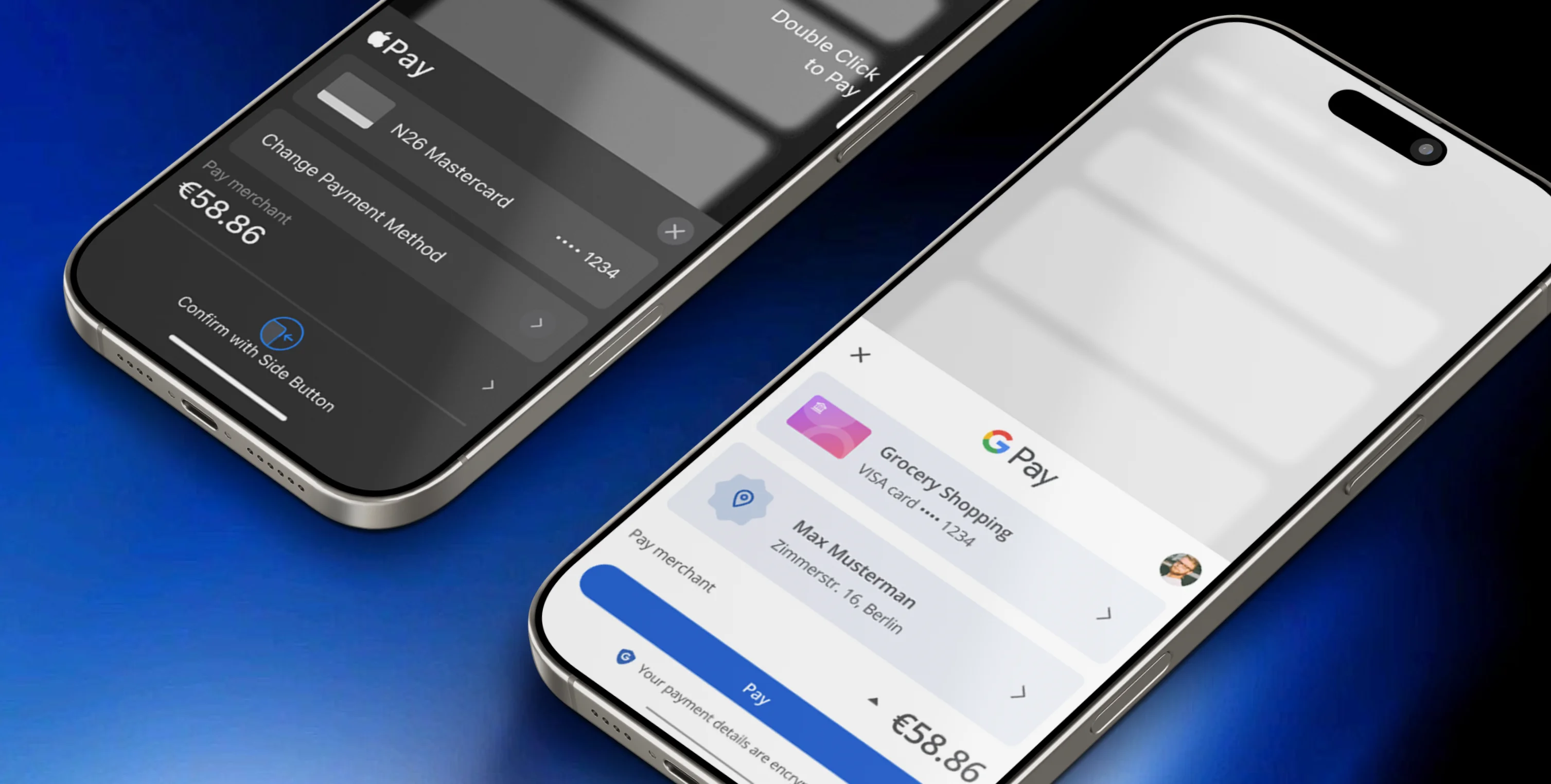Apple Pay® and Google Pay™ have made checkout experiences faster and more secure for customers everywhere. But for merchants, that convenience comes with trade-offs.
These wallets are typically connected to a single payment service provider (PSP) that controls how transactions are processed, limiting flexibility and control. For global merchants operating across multiple markets, this dependency has long been a barrier to full orchestration. Each wallet setup requires a separate integration, leaving merchants unable to optimize wallet payments with the same control they already have for cards.
Why traditional wallet setups limit flexibility
In traditional wallet setups, the PSP holds the private keys and certificates from Apple Pay or Google Pay. Only that provider can decrypt the payment token, effectively locking each wallet transaction and any future recurring payments to a single PSP.
For merchants, this means less flexibility. They cannot route Apple Pay or Google Pay transactions based on performance, cost, or geography the way they can with cards. Each wallet setup requires its own PSP integration, limiting choice and slowing expansion across markets.
This dependency creates several challenges for merchants:
- Limited ability to switch or add new providers without re-integration
- Missed opportunities to optimize cost and performance
- Added complexity when managing recurring or multi-market payments
These challenges are exactly what Payrails set out to solve.
How Payrails gives merchants agnostic Apple Pay and Google Pay support
Payrails now supports Apple Pay and Google Pay in a fully agnostic setup. By moving the decryption process into Payrails, merchants can integrate these wallets once and route the decrypted payment data to any supported provider, gaining full control over routing and provider choice.
This gives merchants the same orchestration power they already rely on for cards, including smarter routing, retries, and performance optimization. It also simplifies operations by removing the need for provider-specific wallet integrations.

With agnostic Apple Pay and Google Pay, merchants can manage wallet payments with the same flexibility they have for cards. Integration becomes simpler, and routing decisions stay in the merchant’s control.
They can direct transactions based on geography, performance, or cost, all from one consistent setup that works across every payment method. This removes the complexity of PSP-specific wallet integrations while keeping the customer experience smooth and secure.
Payrails approach to partnership
Payrails is not here to replace payment providers but to connect them. This update was developed in close collaboration with merchants and partners to make wallet orchestration seamless across systems. That is what partnership in payments looks like.
As part of this commitment, Payrails is officially registered as a partner with both Apple Pay and Google Pay, ensuring full compliance and support for their wallet ecosystems.
Our role is to help merchants and providers work better together by enabling compatibility, flexibility, and performance across every payment flow.
A new standard for wallet flexibility
With fully agnostic Apple Pay and Google Pay now live, merchants can finally run every payment on their own terms. It marks another step toward a more open, flexible, and merchant-driven payment ecosystem. One where orchestration empowers choice, not lock-in.
By making wallets as flexible as cards, Payrails gives merchants a payments foundation that can evolve with their business rather than constrain it.









.png)
